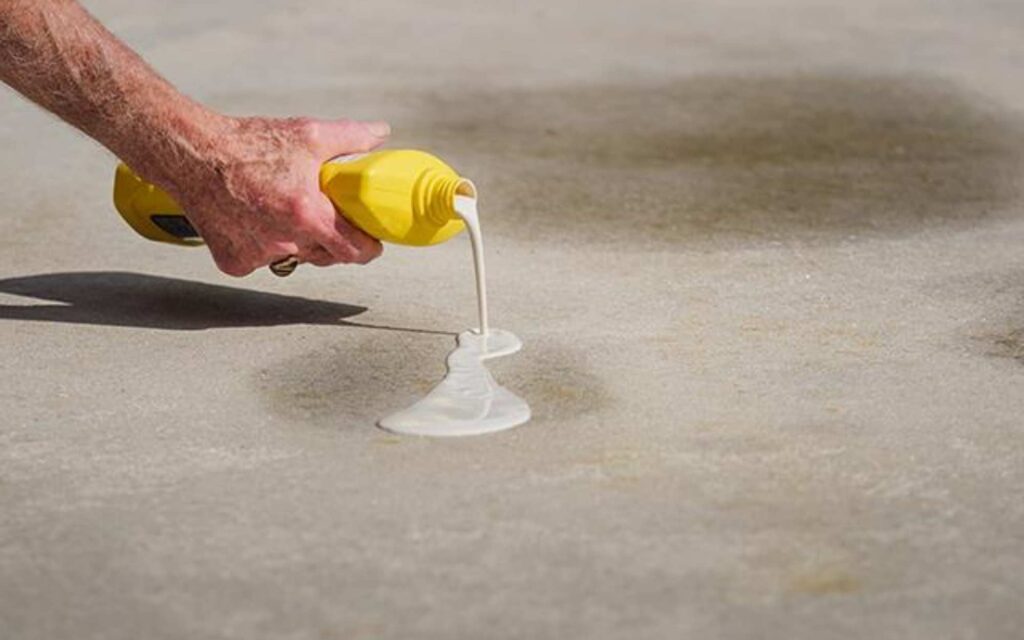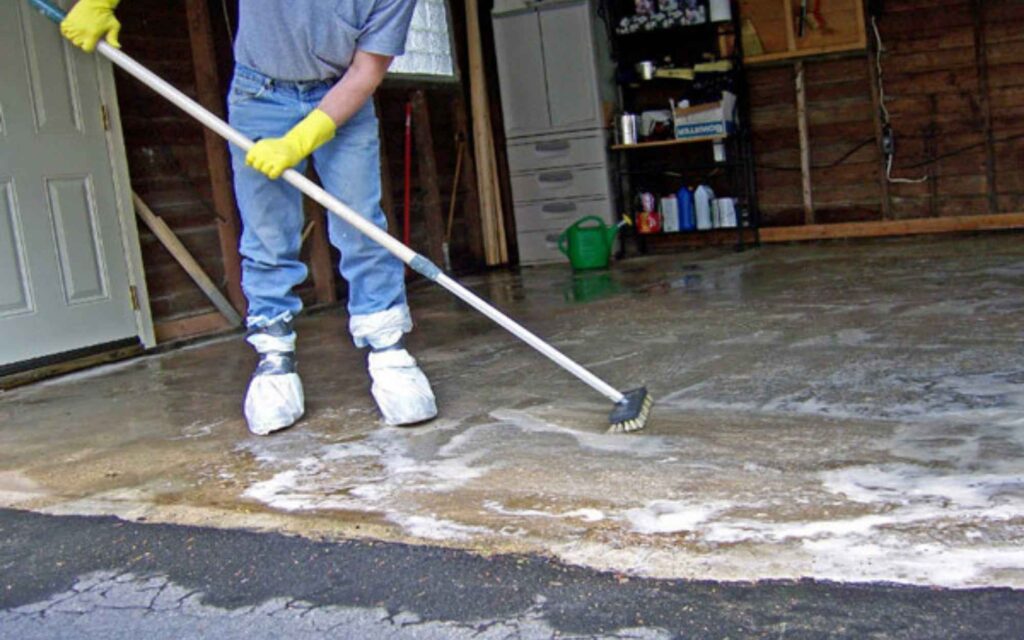Oil stains on concrete aren’t just ugly—they’re stubborn, hard to remove, and can reduce your property’s curb appeal. The good news? With a few smart steps, you can prevent oil stains before they happen.Whether you’ve already cleaned up a spill or want to avoid the hassle altogether, this guide shows how to protect your concrete surfaces from future motor oil messes.
Why Prevention is Easier Than Cleanup
Once oil penetrates concrete, it can be difficult—and sometimes expensive—to remove. If you’ve dealt with a stain before, you know the effort it takes.
1. Use a Garage Floor Mat or Driveway Oil Mat
One of the easiest and most effective solutions is placing an absorbent mat under your car or equipment.
- Benefits:
- Captures drips before they reach the concrete
- Easy to clean or replace
- Non-slip and chemical-resistant materials
Ideal for cars with minor leaks or if you perform oil changes at home.
2. Seal Your Concrete Surface
Concrete sealers create a barrier that helps prevent oil from soaking in.
- Types of Sealers:
- Penetrating sealers: Invisible, durable protection
- Film-forming sealers: Give a glossy look, easier to clean
Reseal your driveway or garage every 1–3 years for best results.
👉 If you’ve already cleaned oil using a degreaser, sealing your concrete afterward is highly recommended.
You can find top cleaner options here:
Best Degreasers for Motor Oil on Concrete – Product Review

3. Regular Vehicle Maintenance
Many oil stains happen simply because of neglected oil leaks. Inspect your vehicle regularly:
- Check for oil leaks under the engine
- Replace worn-out gaskets or seals
- Change oil at proper intervals
Keeping your vehicle in shape reduces the risk of random drips.
4. Clean Spills Immediately
If a leak or spill does happen, act fast. Early cleanup prevents deep penetration.
- Use kitty litter or sawdust to absorb fresh oil
- Scrub with a degreaser and rinse
- Don’t let oil sit overnight
👉 For deeper stains, especially older ones, this guide helps:
How to Remove Old Motor Oil Stains from Concrete
5. Keep an Emergency Spill Kit Handy
Store a small kit in your garage or workshop. Include:
- Absorbent materials (e.g., litter, rags)
- Degreaser or dish soap
- Gloves and a scrub brush
This quick-access kit can save your floor from permanent stains.
Bonus: Should You Go DIY or Hire a Pro for Prevention?
For prevention, DIY is almost always enough. But if you’ve had multiple bad spills or you’re sealing a large area, a professional might help with:
- Power washing before sealing
- Applying commercial-grade sealers
- Inspecting for deep oil penetration
👉 For situations where the damage is already done and you’re deciding between fixing it yourself or hiring help, this breakdown may help:
DIY vs Professional Concrete Oil Stain Removal – Which is Better?



